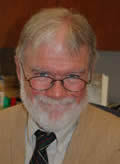
It tumbled out of the pages of a book I was pulling down from the shelf last night, a nicely printed card, a bit yellowed with age now, which had been distributed many years ago at the priestly ordination of a friend of mine. It features a bold cross with an inscription emblazoned around it: “To be a witness does not consist in engaging in propaganda, nor even in stirring people up, but in being a living mystery. It means to live in such a way that one’s life would not make sense if God did not exist.”
The words were, and are, stirring for a young man embarking on a radical vocation which includes poverty, chastity and obedience — those deliberately embraced inconveniences which would be difficult to explain to an atheist. But they ought to agitate all Christians as well as the clergy appointed to serve them. The fact that roughly 76 percent of Americans identify themselves as Christians gives rise to an intriguing question: Leaving aside occasional Sunday morning gatherings, would a cursory inventory of our external behavior turn up anything that wouldn’t make perfect sense if God did not exist?
The quotation on the card comes from a book Priests Among Men, by Cardinal Emmanuel Célestin Suhard, who served as archbishop of Paris from 1940 until his death in 1949, a period that included the German invasion and occupation of France. While unquestionably a man of faith, Cardinal Suhard during this period seems to have forgone the opportunity to give the sort of witness he extolled. Charles de Gaulle and the French Resistance so despised him for his support of the Vichy regime and his politeness to its Nazi sponsors that he was barred from attending the thanksgiving liturgy in the Cathedral of Notre Dame when Paris was liberated in August of 1944.
Cardinal Suhard may well have been much misunderstood, and to this day people argue about his legacy as a church leader. But while the embarrassed silence which surrounds so much French wartime history obscures the details, it’s clear that his ecclesial diplomacy made a certain secular, and embarrassing, sense.
“J’ai vécu” (I survived), is how the French Catholic clergyman, Abbé Sieyès, had frankly and nonchalantly justified his outright renunciation of Christian faith during the French Revolution a century and a half before the Vichy regime. Father Sieyès not only survived, but flourished, living to a ripe and prosperous old age, dying in bed and leaving behind a flattering portrait of himself painted by Jacques Louis David. You can’t get much more sensible than that.
“Making sense” to a faithless polity need not always be a matter of outright cowardice or conspicuous betrayal, any more than “bearing witness” to an unseen God need always be a matter of eloquent prophecy or spectacular martyrdom. Elsewhere in his recommendations to priests, Cardinal Suhard suggests that “like Christ, the priest brings mankind a priceless good, that of worrying it. He must be the ‘minister of restlessness,’ the dispenser of a new thirst and a hunger.”
One surely need not be ordained to the priesthood to exercise such ministry. In fact, the late Cardinal John O’Connor, archbishop of New York, recommended the canonization of the laywoman and Catholic Worker founder Dorothy Day precisely because of her genius for making complacent people salubriously uncomfortable.
This ministry of restlessness can bear paradoxical fruit in the conscience of its beneficiaries, requiring them to navigate their lives against the cultural stream. How odd to think that our redemption may begin with simple dismay at how quietly, preposterously and damnably easy it is to explain ourselves; to beg forgiveness for what perfectly good sense our lives make.
Michael Garvey is Notre Dame’s assistant director of public information and communication. Email him at garvey.2@nd.edu.